Max De Radigués is a Belgian cartoonist who was part of a delegation of French artists (Bande Dessinée) representing French comics at NCS Fest in Huntington Beach, California this past weekend. Max, whose works largely center around teenage relationships with each other and the adults around them, was one of the panelists on “The Webslingers” and “Comics: The Ninth Art.” The Ninth Art is a 1960s term that describes the importance of comics as a legitimate art form. Max was kind enough to spend a few minutes to talk about the importance of storytelling in comics with The Beat.
Nancy Powell: Thank you for speaking with The Beat. How do you like California?
Max De Radigués: It’s beautiful, it’s gorgeous. The weather is amazing. I’m from Belgium so Belgium is Seattle-type of weather. It’s raining a lot. It’s nice here.
Powell: Are you enjoying the festival so far, even though it’s only the first day?
De Radigués: Yeah, it’s only been one day so far. I did a small talk this morning and it was nice. The venue is amazing. I’m already impressed by that.
Powell: So what panels are you going to be participating for the festival?
De Radigués: This morning I was in a webcomics panel, which is strange because I’m not really a web cartoonist in Belgium. I’m part of a publishing house called L’Employe du Moi, and with that publishing house we’ve built a website posting tons of cartoons with panels to read for free. So I guess that’s why I was on the panel.
Powell: I love your books. Your style tends to be very simple, yet there is so much emotional resonance. Who inspired that style?
De Radigués: I think in the beginning, it’s because I started drawing very late. I didn’t have classes when I was a kid. I started drawing when I went to university. I went to art school for drawing comics, and that’s when I started working on drawings.
Drawing has always been really hard for me. It’s something I struggle with. I quickly realized that I couldn’t have one of those really realistic or stylish drawings so I had to be more simple.
I also realized that what’s important in a comic is not how beautiful a comic is, but how efficient it is so that you can make something that at the reader will understand directly. I think that was my big weakness in the beginning, the drawing part. I was trying to come up with all kinds of tricks to hide that. I was doing a lot of collage. Every time I was unable to draw something I would just take it out of a magazine and paste it down on the page. I would have pictures of cars in the middle of my comics.
It was just taking me too long and it was ridiculous to do that all the time. So I started focusing on the story I wanted to tell and how I could tell it with my drawings. And that weakness turned out to be my strength. Thanks to that I developed a very simple drawing and very efficient storyboarding.
What I really like in comics is not seeing everything, leaving a lot of room for the reader to fill it. I try to give a lot of signs. I try not to have a voice on top of the panels saying, oh I’m going there, and it’s later in the day or something. I’m trying to leave all those things to the reader. And I think that the reader feels it with his emotional life. It makes it richer for everyone.
A good example is my first book that was published in the U.S. with One Percent Press, called Rough Age. It is short stories about high school with just characters in the background. There are a few things, like a few tables or chairs, but that was not a background. And I had a lot of people coming up to me saying “Where did you go to school?” or “Were you in the same school?” Because they just fooled themselves and filled in the gaps, put background where there wasn’t any background. So yeah, I think that’s my weakness and really it’s like my strength. It’s awesome.
Powell: That makes your books a very intimate experience. Are any of those stories based on personal experiences?
De Radigués: No. I didn’t rob a bank. I didn’t kill any kid in school when I was small. It’s always fiction. The things that are true in the story are usually the settings, the place where that happens. Like for example in Bastard, a lot of it is the same road I took when there was a wedding I went to in Santa Fe, in San Francisco. All the landscapes are there, and the stuff in the hotel rooms, and there was these small paintings and stuff. I put all those things in the book, and I think it makes the book ring truer, even when its details are not part of the story at all.
But the main story is always inventive. I try to understand what’s happening with my characters. I think the relationship between people is what interests me. And so for Bastard, everybody’s always telling me I’m doing a lot of feelings in the story, and I’m doing a lot of things with teenage stories and romance.
My friends in Belgium make fun of me for being the John Hughes of comics. With Bastard, it was like “oh, I’m going to break that image. I’m going to make something that’s hard with violence, with guns, and things like that. It’s completely outside of what I’m doing. After 50 pages I realized that the guns were just a facade. What was important in the book is the relationship between the two characters. So even when I tried to get away from it, I sort of fall back into it.
Powell: You collaborated with Charles Forsman on Hobo Mom. What was it like working with him?
De Radigués: I met Charles in 2009, 2010 in White River Junction. He was a classmate of mine from The Center for Cartoon Studies. His companion, Melissa Mendes, was still in school, and I was doing the fellowship at the Center. I stayed one year at the school. So Chuck and I quickly became friends. We also quickly realized that we had a lot of things in common on how we see comics and how we want to work and what we want to do. And so we collaborated a lot. When I was there with him, it seemed to go well. We did a newspaper together.
For Hobo Mom, he was working on a short story, and he couldn’t finish it. He wasn’t happy with it, and so he sent me a six-page story. The main character was hobo mom. Form that I go, “I think it’s not working because the story is too short.” So I changed a few things. I added pages. I added characters, and I sent it back to him. And then he sent it back to me, changing things. We just ping-ponged, sending it to each other by mailing, taking out a page. He did that, saying “That’s not good….I’m doing it…” So we were just playing around, and in the end we had a book to work on, and we both drew in every panel. For me, Hobo Mom is like third character. It’s not me, and it’s not him. Today, I don’t know which are mine and which are his. We completely mixed them together.
I think it’s always interesting because when you’re a cartoonist it’s easy to do the same thing over and over again because you feel comfortable with something, or you find a trick that works and you apply it every time. On Hobo Mom with Charles, you have to change the way you work. He’s doing things that you wouldn’t do, so have to adapt yourself. And yeah, it was a really great job, a great book to work on.
Powell: Do you have other projects planned with Charles?
De Radigués: We’re always talking about it, but we’re so busy that it’s hard. And the distance between us…I live in Belgium and he lives in the U.S. It’s not easy. But we’re always talking about doing something else.
The funny thing about Hobo Mom was that nobody wanted the book. We tried to first publish it in Italy because we were both invited to a convention in Italy, and they had a big exhibition on our work. So we made the decision to publish it in France, and then we tried to have someone publish it in the U.S. So we sent it to everybody, from the smallest to the biggest publisher, and everyone hated it. Then Fantagraphics was like, “Oh, we’re working with both Max and Charles. We should do that!” And everybody is like, “Oh the book is so good!” It’s very funny because, yes, we did it.
Powell: Hobo Mom is very good.
De Radigués: Well, thanks!
Powell: Are you excited that Americans are taking more of an interest in French cartoonists?
De Radigués: Yeah it’s so good. I remember when I was in White River Junction in 2010, nobody knew any Belgian cartoonist or French cartoonist except for a few big ones like Tintin. People that were really into comics knew a little bit of some French cartoonists, and I feel like now a lot of publishers are translating. I think it’s really good.
For us in France it’s kind of a normal way to work, and have almost every good American cartoonist translated…in Chinese, in Japanese cartoonist, and you know, from every country production is always translating everything so we know what’s happening everywhere. And yes, I think it’s good that the same is happening here, that people are getting curious to see something else.
The first book I did it with Conundrum Press was Moose. And Andy, the publisher, was like “American people don’t like to read something from a foreign country. But you look like an American in your style and in your stories. So we will do it, and they won’t notice!”
Powell: In the sampling of comics that I’ve read from France, there tends to be an emphasis on realism or the quieter moments of life while American comics are bold and brash, very superhero-driven. Why do you think there is such a big difference between the two countries??
De Radigués: I don’t know. I think it’s just a history thing because comics in Belgium and France are more adventure and it was in publishing magazines. The people running the magazine were Catholic. There was a quiet thing to it. It was the same idea here, but there was more powerful propaganda to it. And so I think it’s really the early days of comics from each country that decided.
Powell: Do you have a favorite American comic?
De Radigués: I feel like most of the comics I read today are from here. I mean, I love Charles Forsman. I love Daniel Clowes, Chris Ware, Noah Van Sciver. I don’t know…there are so many good cartoonists. And it’s funny…when I came up here I directly felt the connection with the way I’m thinking of comics and in the people who have come here. And something that I had with Charles…I feel like we directly understood what each other was doing and wanted to do. I feel like I have a thing with what’s happening here.
Powell: The next book that’s being released in the U.S. is Simon and Louise. Can you tell us a little bit about what the book is about?
De Radigués: Yes. It’s YA comics, and it’s a two part story. So there’s a part on Simon. He is a kid who’s on holiday with his mom, and he’s on the computer on Facebook. He’s just discovered his girlfriend changed her status to single. He doesn’t know why, and he’s trying to call her. But she says “Oh my dad thinks we are too young to be in love. We should break up.“ He’s desperate, and he doesn’t know what to do, so he tells his mom he’s going for a ride with a friend and he just takes off. He hitchhikes to the place where his ex-girlfriend is on holiday. It is 500 kilometers away. And the story is mostly the trip he’s taking and the people he’s going to meet on the way. And when he finds her the story stops.
In French it was released as two books. That was the end of the first book, and the book worked out quite well. But every kid was like, “Whoa, what’s happening? Does she get back together with him?” A lot of people wanted me to make a sequel. And I like disappointing people, so I made a sequel. We start the book when she’s been on Facebook, and we see the same moment, but from her point of view. And when they meet again, it ends. We don’t know.
Powell: So that must have disappointed people!
De Radigués: Yeah! It’s like two stories of the same moment from the same point of view a boy and a girl. And we understand that what one believes to be true is not.
And I have another book that is to be out very soon. I think it’s out in England, but will take a few months to get here. NoBrow is publishing it. It’s a three-part book called Stig and Tilde. It’s also a YA comic. It’s more adventure, kind of a survivor story.
Powell: So who do you look forward to seeing at NCS Fest?
De Radigués: Well, I sort of have a signing with Daniel Clowes and Jaime Hernandez at the Fantagraphics tables. And that’s pretty awesome.


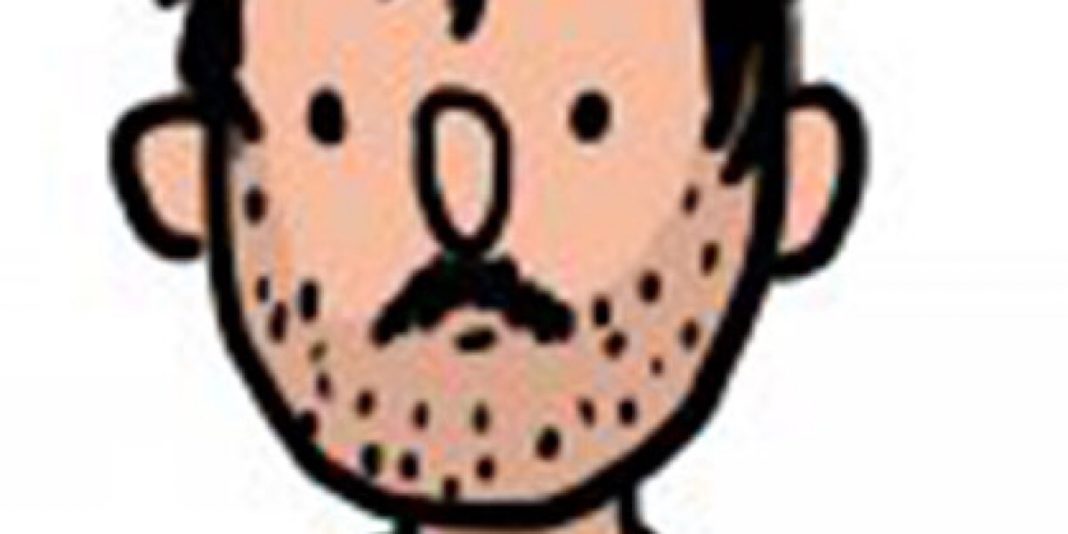
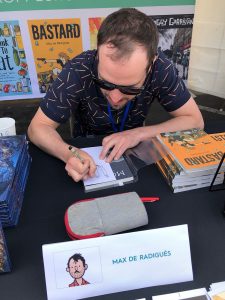
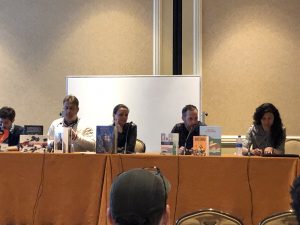
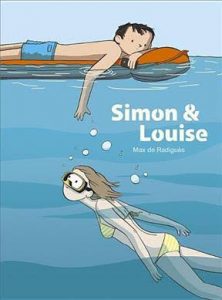
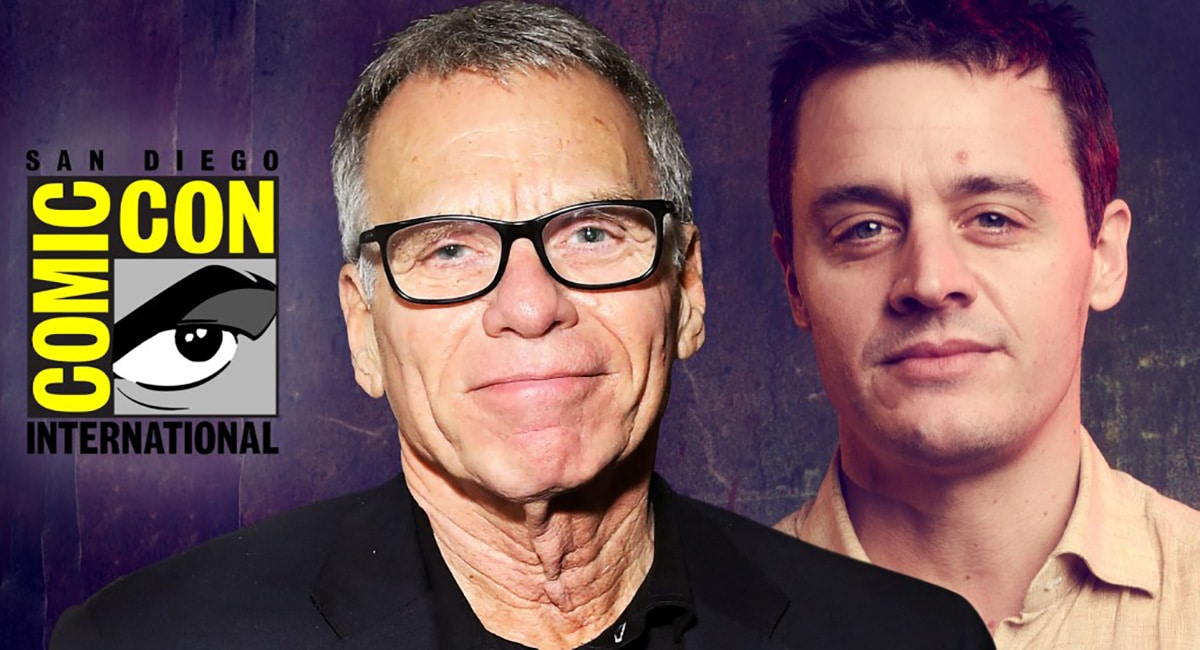

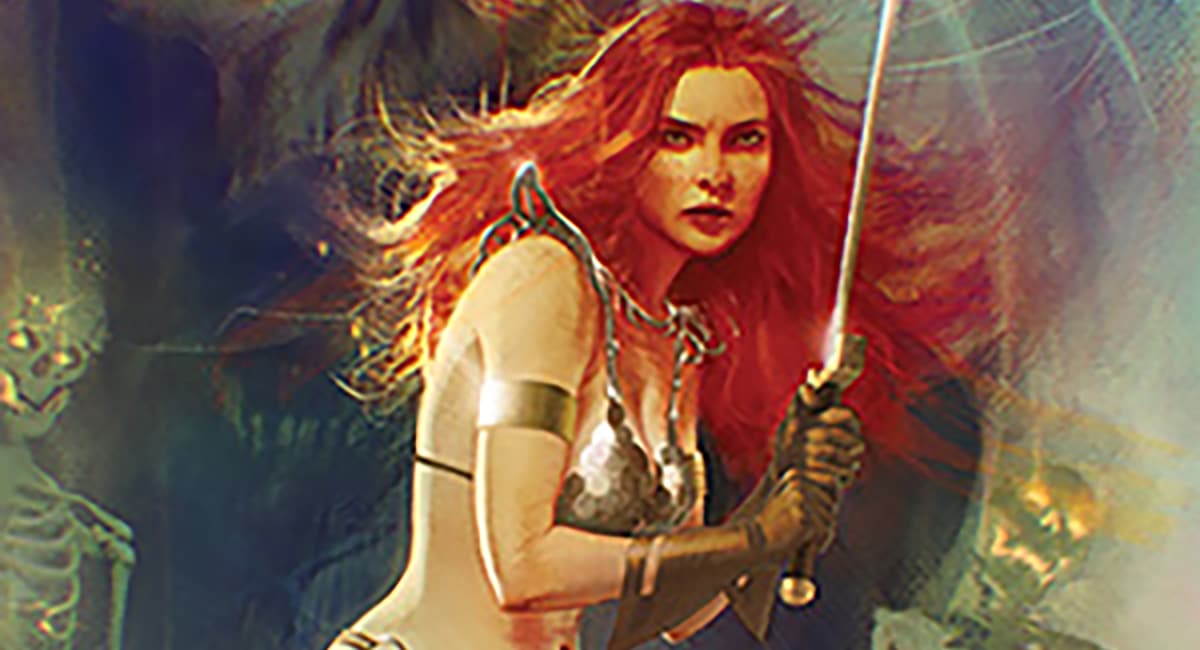


Comments are closed.